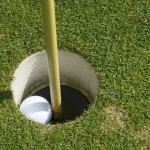Dozens of industrial plants in Russia have turned to the state’s reinsurance company for cover after an extension of U.S. sanctions made it difficult to get reinsurance elsewhere, the head of that firm told Reuters.
The Russian National Reinsurance Co. (RNRC) has signed the new contracts for dozens of industrial plants since new sanctions took effect in early April to cover risks including a halt in production or shipping, he said.
Nikolay Galushin’s comments underscore the impact of fresh sanctions on the Russian economy as it chokes off access to regular reinsurance – a critical process that backstops insurance by sharing large risks.
RNRC was set up chiefly to offer reinsurance to firms barred from using Western providers.
On April 6, the U.S. Treasury Department imposed sanctions against Russian magnate Oleg Deripaska and companies in which he is a large shareholder, including the world’s second-largest aluminum producer Rusal, in response to what it called “malign activities” by Russia.
The firms owned by billionaire Viktor Vekselberg were also sanctioned, as the United States responded to suspected Russian meddling in the 2016 election.
“The insurance company which was covering these risks asked the foreign market (counterparts) where these risks were offloaded: are you with us or with the sanctions?” Galushin said.
“Basically, each single reinsurer said: we’ve pulled out, we can’t do it,” he said. Galushin did not name any companies whose risks RNRC has taken since April 6.
Galushin said that previously such risks had been “almost entirely offloaded in the West.”
“We have taken the risks of all who had pulled out,” he said.
Relations between Russia and the West have worsened after Moscow annexed the Crimea peninsula from Ukraine.
Since then, a wide range of sanctions on companies, banks and individuals were imposed on Russia by the European Union, the United States and other Western nations.
Washington suggested it might lift the sanctions against Rusal and its parent En+ if Deripaska cuts his En+ stake to below 50 percent and introduces independent board members.
The firms are set until mid-summer to come up with a plan to meet U.S. requirements to escape sanctions.
“There are a couple of dozen industrial plants which are insuring their property, (potential) losses from stoppage in production, cargoes, liability etc,” Galushin said.
Deripaska’s business empire includes insurer Ingosstrakh as well as EuroSibEnergo. The U.S. Treasury gave Deripaska’s counterparts until Oct. 22 to wind down business with Rusal.
Galushin said that the reinsurance liability limit on the single event on the “new (sanctioned) risks” exceeds 20 billion roubles ($320 million). RNRC’s capital is 21.3 billion roubles and it also has central bank guarantee worth 49.7 billion roubles.
He said that the current capital was enough to cover for any potential payouts under the commercial contracts it has while in an event of a sanctioned company payout the central bank was ready to provide more funds.
($1 = 62.5469 roubles) (Writing by Denis Pinchuk and Katya Golubkova; editing by John O’Donnell and Louise Heavens)
Topics USA Reinsurance Russia
Was this article valuable?
Here are more articles you may enjoy.


 How California’s Huge Raises for Fast-Food Workers Will Ripple Across Industries
How California’s Huge Raises for Fast-Food Workers Will Ripple Across Industries  Grand Jury Indicts ‘Hole in Won’ Owner on Prize Insurance Fraud Charges
Grand Jury Indicts ‘Hole in Won’ Owner on Prize Insurance Fraud Charges  FBI Says Chinese Hackers Preparing to Attack US Infrastructure
FBI Says Chinese Hackers Preparing to Attack US Infrastructure  California Sees Two More Property Insurers Withdraw From Market
California Sees Two More Property Insurers Withdraw From Market 

